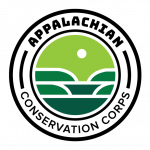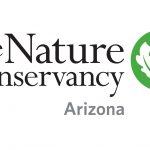Overview
The Traditional River Steward will lead educational initiatives focused on Indigenous environmental conservation practices, emphasizing the vital role of traditional ecological knowledge (TEK) in protecting and sustaining local river ecosystems. Through engaging and interactive programs, the Steward will teach youth and community members about Indigenous approaches to environmental stewardship, sustainable land and water management, and the deep cultural and spiritual connection to the river. The steward will also work with partners to facilitate and provide a forum for exchange of information on ecological principles, techniques, and values incorporating indigenous knowledge and the tenants of the environmental sciences.
Primary Roles and Responsibilities:
Cultural Stewardship and Conservation:
- Foster and practice river stewardship using traditional ecological knowledge (TEK) to maintain the health of the river and surrounding environments.
- Work with the tribe and other conservation partners to ensure traditional knowledge is preserved and shared through stewardship activities.
- Develop, lead, and manage educational and conservation activities and programs.
Youth Education and Community Engagement:
- Develop and implement culturally focused environmental education programs for youth, teaching them about the river’s history, ecology, and traditional practices.
- Lead hands-on educational experiences, such as river clean-up days, manufacturing traditional traps and snares, or sustainable fishing workshops, where youth learn to interact with the river and its resources responsibly.
- Engage youth and community members in river restoration projects, including habitat restoration, tree planting, and invasive species management, while incorporating cultural teachings into the process.
- Educate participants on the traditional practices of restoring the land and water, emphasizing the spiritual interconnectedness of all living things.
- Strengthen relationships with community members, schools, and local organizations by organizing cultural and environmental events that celebrate the river and its significance to the community.
- Act as a liaison between traditional knowledge holders, environmental organizations, and government agencies to ensure the river’s cultural and ecological needs are met.
- Lead community workshops on the importance of cultural practices in environmental conservation and sustainability.
River Monitoring and Restoration:
- Participate in monitoring the health of the river, utilizing traditional methods alongside modern tools to assess water quality, wildlife, and habitat conditions.
- Incorporate indigenous cultural practices, such as sustainable fishing, water management, and plant gathering, into conservation efforts.
- Work in collaboration with our Environmental and Natural Resources Department to support restoration projects.
Qualifications:
- Strong knowledge and experience in traditional ecological knowledge (TEK), indigenous beliefs and cultural practices, and river ecosystems.
- Experience working with youth, particularly in educational or mentorship roles, and the ability to adapt learning methods to diverse cultural backgrounds.
- Passion for integrating environmental stewardship with cultural preservation and sustainability.
- Excellent communication skills and the ability to engage with youth, elders, and community members in a respectful and inclusive manner.
- Ability to work both independently and collaboratively with local communities, agencies, and organizations.
Preferred Skills:
- Familiarity with the specific river system or Eastern Woodland practices and belief systems.
- Experience with hands-on educational activities, outdoor programs, or environmental education.
- Knowledge of local plant and animal species, as well as traditional land and water management practices.
Physical Requirements:
- Ability to work outdoors in various weather conditions.
- Comfort with physical tasks, including walking, hiking, and leading outdoor educational activities.
- Ability to engage in field-based activities like river monitoring, planting, and restoration projects.
Employment Details:
Location: St. Stephens Church, VA. The Traditional River Steward will split their time between office-based responsibilities and engaging, hands-on fieldwork. While a portion of the role will involve work in the office, the steward will also be out in the community and natural environment frequently.
Compensation: Compensation commensurate with experience. The position is grant-funded. Continuation of employment is contingent on funding. Benefits include medical, dental, vision, paid-time off, and retirement.
Supervisor: Tribal Chief
Apply by sending your resume and cover letter to jnguyen@rappahannocktribe.org. This posting will remain active until the opportunity is filled.
EOE M/F/D/V The Rappahannock Tribe is committed to providing equal employment opportunities to all individuals, regardless of gender, disability status, or veteran status. We reserve the right to alter, change, modify, and/or terminate this job posting at any time without notice, or obligation, to any party. The Rappahannock Tribe adheres to the Indian Preference Policy in our hiring practices.
About Rappahannock Tribe
The mission of the Tribe is to preserve Rappahannock culture, social structures, and political structures while educating the public on the rich contributions that Rappahannocks have made and continue to make to Virginia and the Nation.



